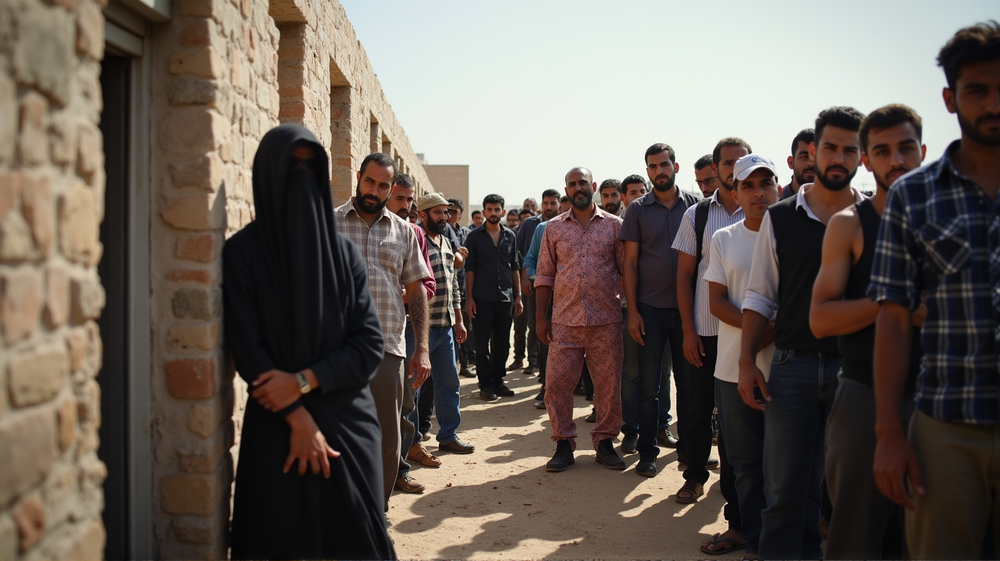In the conflict-torn region of Gaza, particularly at Rafah, the urgent quest for survival has turned into a distressing narrative. As civilians eagerly queued for much-needed aid, a tragic incident unfolded, leaving many lives lost and raising profound questions.
The Desperate Corner of Rafah
Each day at Rafah presents a fresh challenge where the struggle to procure the basics of life is real. The area’s humanitarian aid setup, managed by the Gaza Humanitarian Foundation, has been overshadowed by the overwhelming demand far exceeding supply. According to eyewitness accounts, the arrival of food parcels is a beacon of hope, desperately awaited by thousands who rely on these deliveries as a lifeline.
The Lines of Hope and Desperation
For many in Rafah, arriving early to stand in line could make the difference between eating and going without. The emotional and physical toll of 12 weeks of unreliable food access has frayed nerves and perseverance, leading people to take significant personal risks. Those who worry about returning from the aid distribution without anything for their families understand the stakes involved.
A Tragic Turn of Events
In a heart-wrenching twist, a situation that began with hope ended tragically. As a large crowd gathered, the air was suddenly pierced with shots fired by Israeli military forces, allegedly after they identified “several suspects.” This rash action turned a place of potential relief into a scene of grief and chaos. Eyewitnesses and survivors have reported how unarmed civilians were caught in the crossfire of this distressing event.
Eyewitness Accounts and the International Outcry
The outcry following the event has reverberated internationally, with poignant stories unfolding from those on the ground. According to BBC, reports and testimonies depict a scene of sheer terror, where the hope of aid was obliterated by sudden violence. The excessive force used against people who were only seeking means to survive has drawn widespread condemnation and raised critical humanitarian concerns.
Global Response and Call to Action
The international community’s reaction has been one of empathy and demands for immediate action. Global leaders and humanitarian organizations are now more vocal than ever, calling for accountable measures to prevent such incidents. While residents of Rafah continue to face harsh conditions, these poignant moments echo the urgent need for lasting solutions to the region’s chronic shortages and conflicts.
The tragedy at Rafah stands as a profound symbol of the relentless struggles endured by many in Gaza, urging not just empathy but decisive action to ensure that aid reaches those who need it most without danger or despair.













